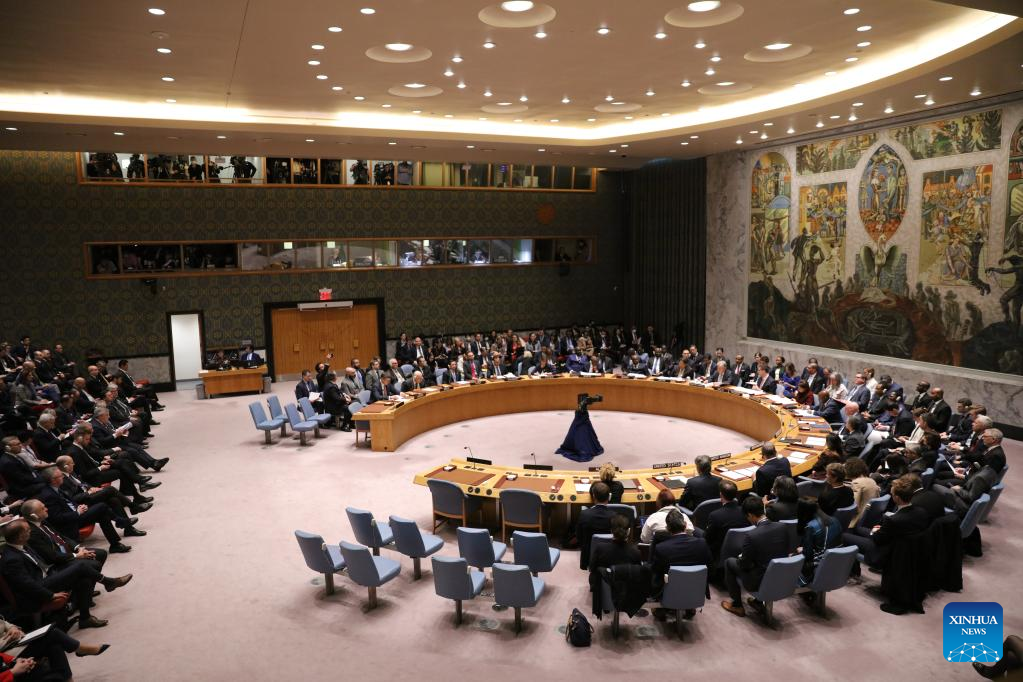Cease-fire a top priority, envoy tells UN session


A Chinese envoy to the United Nations on Thursday told a resumed emergency special session of the UN General Assembly that facilitating a cease-fire in Ukraine is a top priority, and the international community should work together to promote peace talks.
"China's position on the Ukraine issue is consistent and clear. The sovereignty and territorial integrity of all countries should be respected. The purposes and principles of the UN Charter should be upheld," said Dai Bing, charge d'affaires at the Chinese Permanent Mission to the UN.
"The legitimate security concerns of all countries should be taken seriously, and all efforts conducive to the peaceful resolution of the crisis should be supported," he said.
The 11th emergency session of the General Assembly resumed on Wednesday two days before the anniversary of the conflict between Russia and Ukraine.
"The top priority is to facilitate a cease-fire and a cessation of hostilities without delay," Dai emphasized, adding that conflicts and wars have no winners. "The longer the brutality, the greater the human suffering."
He called on the parties to the conflict to remain rational, restrain their impulses and prevent the crisis from getting worse or even out of control.
Dai reiterated that nuclear weapons cannot be used.
"Nuclear war cannot be fought. All parties should join together against the use or threat of use of nuclear weapons, prevent nuclear proliferation and avoid a nuclear crisis," he said.
Only viable way
Dai said dialogue and negotiation are "the only viable way to resolve the Ukraine crisis".
"The lessons of history tell us that crises can ultimately be resolved peacefully. No matter how difficult it is, the door to a political solution cannot be closed," he said.
"We support Russia and Ukraine in resuming direct dialogue as soon as possible, bringing their legitimate concerns into the negotiation, setting out feasible options, and giving a chance to an early end of the crisis and the rebuilding of peace."
The deep cause of the Russia-Ukraine conflict is the expansion of NATO, and "the Russians are reacting to the West's attempt to make Ukraine a western bulwark on Russia's border," John Mearsheimer, political science professor at the University of Chicago, told Xinhua News Agency.
During the Munich Security Conference concluded on Feb 19, there was "palpable frustration among some leaders from African and South American nations" over the protracted conflict, which "was consuming the time, money and attention of the West at the expense of other pressing problems," the Financial Times observed.
"We don't want to go on discussing who will be the winner or the loser of a war," said Colombia's Vice President Francia Marquez."We are all losers and, in the end, it is humankind that loses everything."
Xinhua contributed to this story.
minluzhang@chinadailyusa.com

































